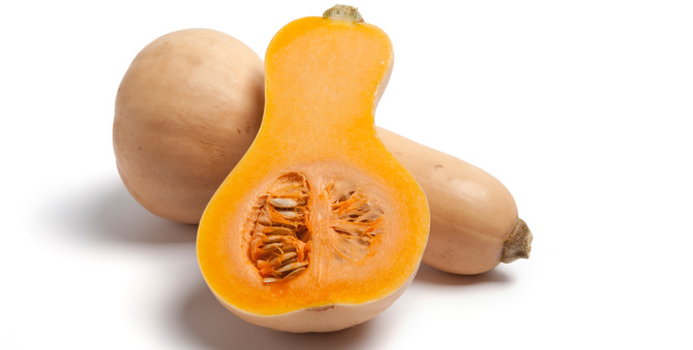Some creative shoppers are already familiar with the various good points of items like butternut squash, but for those who haven't already looked at these vegetables, a little research into the health benefits of this food can go a long way. Knowing more about what you need for good health will help you make the best decisions at the supermarket or in restaurants that will help keep you in good shape for the future.
Nutrition of Butternut Squash: Calories
When you look at the actual calories in butternut squash, you can see how these attractive food items can be good substitutes for the potatoes that lots of Americans eat on a daily basis.
For a serving of one cup of butternut squash cubes, nutritional estimates average the calorie count at about 100 or a little less. That's less than half of what a similar serving of potatoes would contain. That shows how squash can be a low calorie substitute for potatoes, where these two foods have a lot of similar uses.
Nutrition of Butternut Squash: Dietary Properties
Aside from the lower amount of calories in squash, there are also a lot of other good points about fitting this natural food into your routine diet. The 1 cup serving of butternut squash includes about 22 g of carbohydrates and 2 g of protein, as well as 4 g of sugars. There's no significant fat content or cholesterol, in this plant food. There's also not a lot of sodium, something that gets added to a lot of processed foods and contributes to some specific health risks.
Nutrition of Butternut Squash: Vitamins
Along with the above, butternut squash is also a great source of some essential vitamins and nutrients that the body needs to stay healthy. At the top of the list is vitamin A, a nutritional element that helps with eye function. Butternut squash is also a major source of other vitamins like vitamin C, a classic antioxidant, as well as vitamins E and B6, and other nutrients like thiamin and riboflavin. Butternut squash also contains some folate, something that pregnant women need for healthy fetal development, as well as potassium, a nutrient that can help with the treatment of some kinds of health disorders like hypertension.
Overall, butternut squash is a rich source of nutrients for the body. It's something that you can consume without worrying about ingesting added ingredients such as sugar, calories or fat. Try substituting butternut squash in some recipes, or using it in classic ways, like in rich soups or vegetable stir-fries. You might find that this type of vegetable is a great way to get what you need in a meal. Using it regularly can help you cut down on calories and unwanted fats and sugars associated with some of the more common foods on the American menu.



